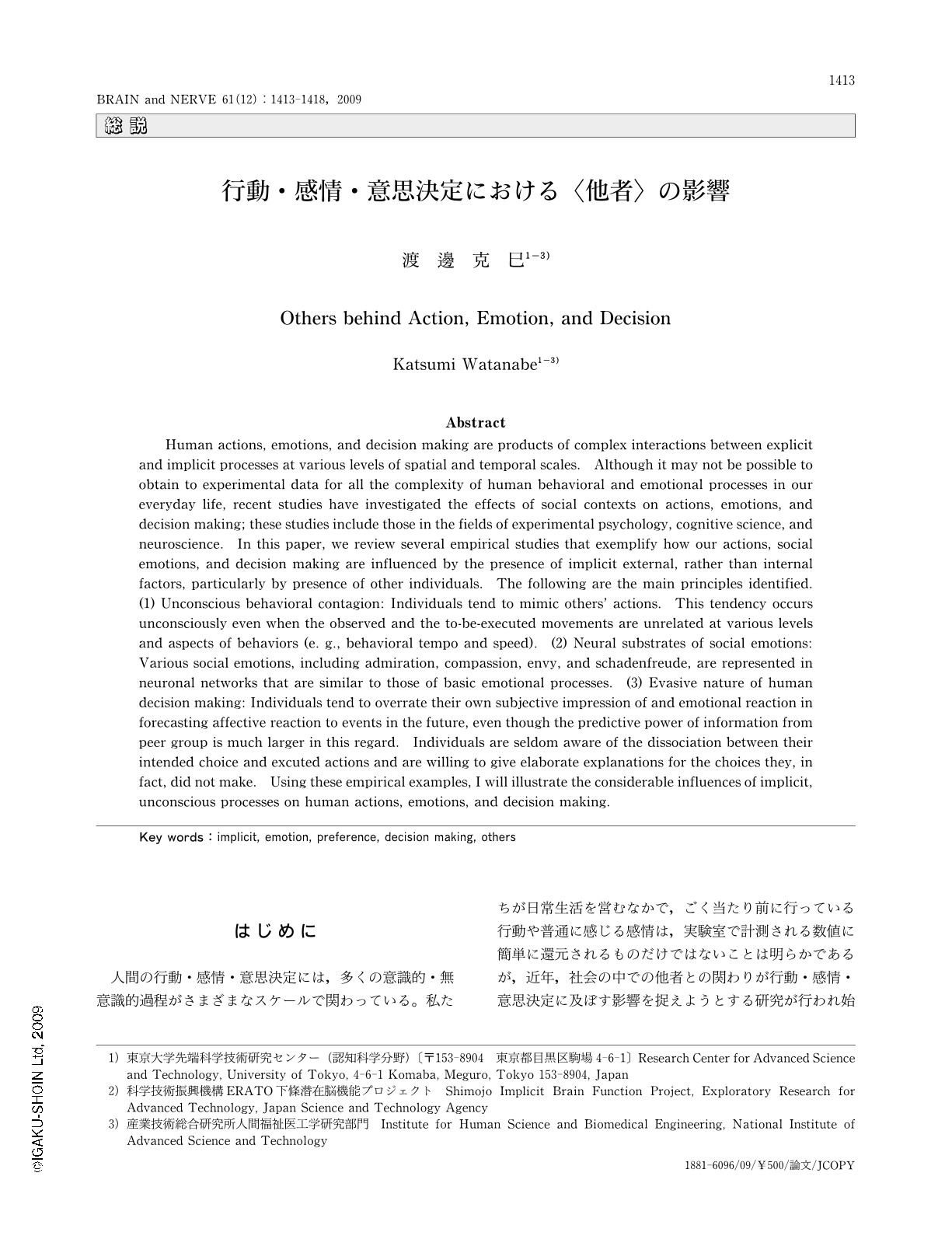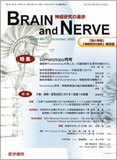Japanese
English
- 有料閲覧
- Abstract 文献概要
- 1ページ目 Look Inside
- 参考文献 Reference
はじめに
人間の行動・感情・意思決定には,多くの意識的・無意識的過程がさまざまなスケールで関わっている。私たちが日常生活を営むなかで,ごく当たり前に行っている行動や普通に感じる感情は,実験室で計測される数値に簡単に還元されるものだけではないことは明らかであるが,近年,社会の中での他者との関わりが行動・感情・意思決定に及ぼす影響を捉えようとする研究が行われ始めている。その中には,個人の行動や感情,意思決定は,われわれが信じているほど内的な理由に基づいているわけではなく,多くの部分が意識されない外部(特に他者の存在)によって決められていることを示唆する研究もある。本稿では,特に行動・動作の無意識的な同調,社会的感情(共感や嫉妬など)の脳内メカニズム,社会的状況での意思決定の曖昧さと他者の影響などの研究を紹介しながら,それらの示唆するところを考察したい。
Abstract
Human actions,emotions,and decision making are products of complex interactions between explicit and implicit processes at various levels of spatial and temporal scales. Although it may not be possible to obtain to experimental data for all the complexity of human behavioral and emotional processes in our everyday life,recent studies have investigated the effects of social contexts on actions,emotions,and decision making; these studies include those in the fields of experimental psychology,cognitive science,and neuroscience. In this paper,we review several empirical studies that exemplify how our actions,social emotions,and decision making are influenced by the presence of implicit external,rather than internal factors,particularly by presence of other individuals. The following are the main principles identified. (1) Unconscious behavioral contagion: Individuals tend to mimic others' actions. This tendency occurs unconsciously even when the observed and the to-be-executed movements are unrelated at various levels and aspects of behaviors (e. g.,behavioral tempo and speed). (2) Neural substrates of social emotions: Various social emotions,including admiration,compassion,envy,and schadenfreude,are represented in neuronal networks that are similar to those of basic emotional processes. (3) Evasive nature of human decision making: Individuals tend to overrate their own subjective impression of and emotional reaction in forecasting affective reaction to events in the future,even though the predictive power of information from peer group is much larger in this regard. Individuals are seldom aware of the dissociation between their intended choice and excuted actions and are willing to give elaborate explanations for the choices they,in fact,did not make. Using these empirical examples,I will illustrate the considerable influences of implicit,unconscious processes on human actions,emotions,and decision making.

Copyright © 2009, Igaku-Shoin Ltd. All rights reserved.


